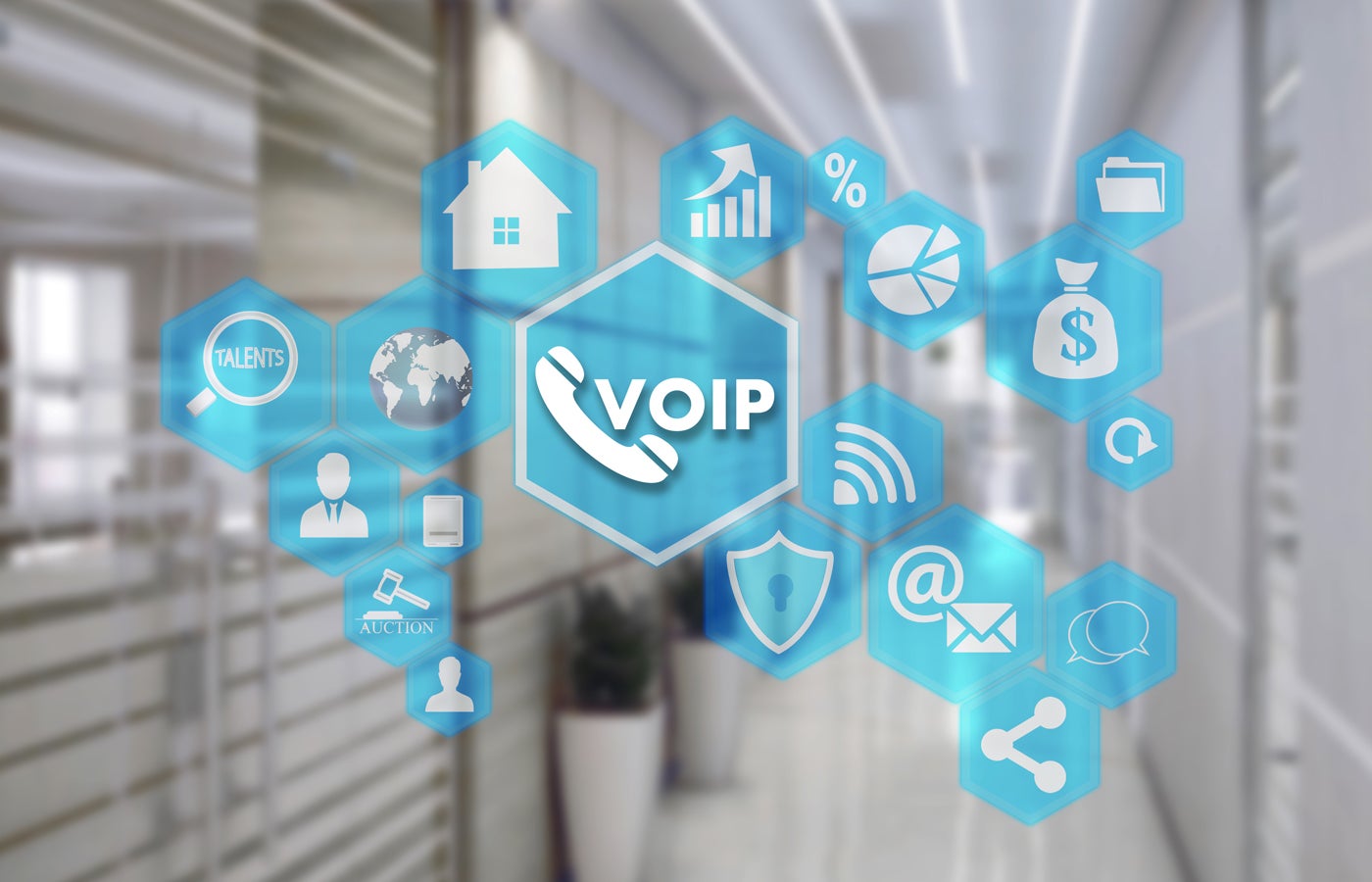In the world of VoIP phone systems, you’ll typically pay around $25 per seat per month. However, prices can vary, ranging from $10 to $40, depending on the features you need.
These features are often included for around $25 per seat:
- Auto attendant: A digital receptionist that automatically greets callers and directs them to the right department, team or individual.
- Business text messaging: Streamlined text-based communication between you and your customers.
- Call forwarding: Automatically sends incoming calls to different phone numbers or extensions based on the criteria you choose, such as time of day or caller ID.
- Call recording: Record all incoming and outgoing calls for quality assurance or compliance purposes. You can then review and analyze them at a later time.
- Call analytics: Real-time data and key performance indicators based on system usage.
- Call queuing: Manages high call volumes by putting incoming calls in a queue until an agent is available.
- Voicemail: Stores voice messages when you’re unavailable to take a call.
- Call routing: Distributes incoming calls to specific people or departments based on predetermined rules, ensuring callers reach their intended target the first time.
- Caller ID: Displays the phone number and, when available, the name of the caller, providing context before you answer.
Looking for a plan below the $25 mark? Prices can dip to a budget-friendly $10 per seat with the cheapest VoIP phone provider, but you’ll lose some features and may have a capped number of monthly minutes.
If you need premium features and a more robust system, mid-tier plans typically start at around $40 per seat. The enhanced functionality may be worth the increased investment if you’re operating a bustling call center or a large enterprise.
VoIP phone system overview
A VoIP phone system is similar to traditional phone service, but it’s powered by the internet. Your voice is converted into data packets and sent to the receiver, offering a more flexible and budget-friendly way to communicate.
What do you need to get started with VoIP?
There are a few basic equipment and infrastructure necessities in order to get started using VoIP for business communication.
You will require:
- A reliable internet connection with adequate speed.
- A subscription to a VoIP service.
- Devices for making and receiving calls.
Are specialized phones necessary for VoIP calling?
IP phones offer a seamless transition to VoIP communication, but they’re not your only option. If you’re watching your budget, an Analog Telephone Adapter (ATA) enables existing landline phones to work with a VoIP system.
Alternatively, softphone functionality on existing computers or mobile devices works well if you don’t need or have access to traditional phones.
How is a VoIP system managed?
A web-based interface lets you set up, manage and troubleshoot your VoIP system without a specialist—and without breaking a sweat. While it’s nice to have a VoIP-savvy person on your team, it’s not a requirement since many VoIP providers offer comprehensive support.
Is VoIP cheaper than a landline?
For businesses, the key things to keep an eye on when choosing between VoIP and traditional phone systems are cost-effectiveness, scalability and features. VoIP often wins on all these fronts. It’s usually cheaper, easier to adjust as your business changes and comes packed with features that traditional systems either lack or charge extra for.
By asking yourself key questions like, “Will this system meet my current needs?” or “Is it flexible enough for the future?” you’ll be able to make an informed decision.
VoIP phone systems for small business
The landscape of small business communication is wonderfully diverse, and VoIP phone systems are versatile enough to meet a range of needs. You have plenty of options for configuring a system that will work well for your small team.
Small office
If all you need is a system that keeps team members reachable, with straightforward extensions and voicemail, VoIP has you covered — no frills attached.
Retail store
Imagine a busy store where you want to make an announcement to customers or staff over an intercom. VoIP can integrate a PA system and a few strategically-placed IP phones to ensure your team is always within reach.
Service business
Need to add a local touch? VoIP can provide a region-specific number, elevating your community presence. It even allows for sending text reminders, which is beneficial for both the service provider and the customer.
Virtual office
In a remote environment, everyone can stay connected through softphones. Sharing contacts just takes a click, and conference calls are as easy as pouring a cup of morning coffee.
What might make VoIP phone systems more expensive?
A basic VoIP subscription will usually include the essentials I covered earlier for roughly $25 per seat, per month. But what if you want a bit more, like real-time analytics, unlimited storage for recordings or multiple integration options?
These features often come as optional add-ons that may require additional investment, but each is tailored to elevate the communication experience. Some providers may bundle these in a premium package, while others offer them a la carte.
Let’s delve into some of these premium features to better understand their value.
CRM integration
Integrating your VoIP phone system and Customer Relationship Management (CRM) software is like having a seamless bridge between your communication channels and customer data. You can talk to your customer while reviewing their purchase history, previous interactions and preferences at the same time.
Benefits:
- Improved customer experience: Having essential information at hand allows for personalized and timely customer interactions, which raises the bar for customer satisfaction.
- Streamlined productivity: With VoIP and CRM integration, there’s no need to toggle between multiple applications. All essential functions and data are consolidated on a single screen, enhancing the workflow and reducing administrative tasks.
- Data accuracy: Real-time data syncing reduces the chance of human error.
Additional costs:
While CRM integration with VoIP offers a lot of perks, it’s not always available on cheaper VoIP plans. On top of that, setting up the integration might mean bringing in a tech professional or buying additional third-party software.
Pre-built integrations:
VoIP systems with pre-built CRM integrations are a great way to simplify the set-up process. These out-of-the-box solutions take just a few clicks, reducing the need for specialists, third parties or additional tools (like Zapier).
These pre-built integrations are typically user-friendly and efficient, but it’s a good idea to check if they cover all the functionality you need. For more specific or complex functions, you may require a customizable solution.
Additional premium VoIP phone system features
Advanced features tend to cost more, but they’re worth it if you’ll actually use them, especially from a workflow and customer satisfaction perspective.
From intelligent call routing to in-depth analytics, these features provide added value that can significantly elevate the quality of your communications.
- Advanced call routing: Direct calls based on the time of day, caller ID and more. Overall, it makes the customer experience as smooth as possible.
- Multi-level auto attendants: Think of these as intelligent digital receptionists. They greet callers and guide them through sub-menus to ensure they reach the department or individual they’re looking for.
- Unlimited call recording storage: Storing call recordings for an extended period or in bulk often costs more, but it’s a trove of data for quality assurance and compliance.
- HD video conferencing: Brings a professional, yet human touch to digital communication.
- Dedicated support: Rather than calling in to the same toll-free number as everyone else, you’ll get direct access to an assigned representative who can help right away.
- Security features: Encryption, secure account management, fraud protection and other security essentials to ensure your communications, systems and workflows are protected.
- Advanced analytics and reporting: These help you understand communication patterns and make data-driven decisions.
Each of these premium features carries its own additional costs, often reflected in a higher monthly subscription fee or initial set-up costs. But the value they provide in enhancing communication, improving customer service and ensuring business operations run smoothly can outweigh the costs, making them a worthy investment for many businesses.





